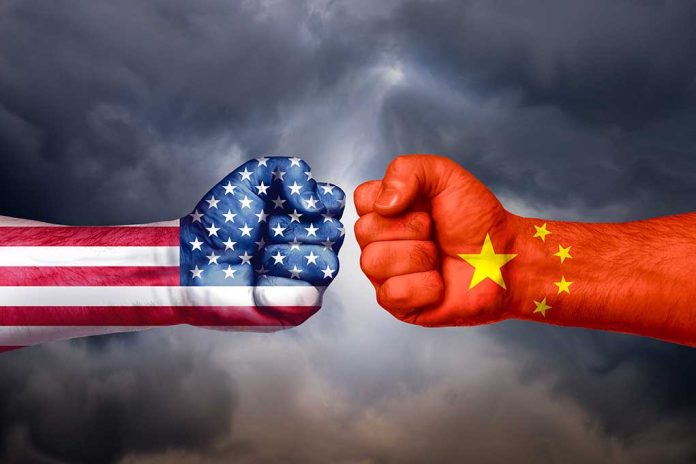
China’s ban on critical minerals export to the U.S. threatens to cripple American military capabilities, highlighting the strategic importance of antimony in global warfare.
At a Glance
- China has banned the export of gallium, germanium, antimony, and other critical minerals to the U.S.
- Antimony is crucial for U.S. military applications, including ammunition and night vision goggles.
- The U.S. once supplied 90% of its antimony needs but now heavily relies on imports.
- Antimony prices have surged over 200% due to supply constraints.
- The ban is seen as retaliation for U.S. restrictions on China’s chip-making industry.
China’s Strategic Move in the Trade War
In a significant escalation of trade tensions, China has implemented a ban on the export of critical minerals to the United States, including gallium, germanium, and antimony. This move is widely interpreted as a direct response to U.S. efforts to impair China’s advanced semiconductor production capabilities. The banned minerals are crucial for manufacturing semiconductors, LEDs, solar cells, fiber optic cables, and various military applications, potentially impacting industries ranging from defense to consumer electronics and renewable energy.
China’s dominance in the global production of these minerals, particularly antimony, puts the United States in a vulnerable position. The U.S. Department of Commerce has recognized the strategic importance of these materials, with Secretary Gina Raimondo emphasizing the administration’s targeted approach to safeguarding national security interests.
China’s restrictions on antimony exports could cripple US military-industrial complex: here’s why
The Chinese Commerce Ministry has adopted export controls on antimony metals, ores, and oxides effective September 15. The ministry said the measure was not aimed against any… pic.twitter.com/x199AzGfhm
— Sputnik (@SputnikInt) August 19, 2024
Antimony: A Critical Metal for U.S. Defense
Antimony’s significance in the defense sector cannot be overstated. Once a major producer, the United States now heavily relies on imports to meet its needs. This metal plays a crucial role in various military applications, from ammunition production to advanced technology like night vision goggles and infrared sensors.
“Additionally, antimony is used in a variety of military applications, including night vision goggles, explosive formulations, flares, nuclear weapons production, and infrared sensors.” – U.S. International Trade Commission report
The metal’s importance was first recognized during World War II when it was essential for ammunition and steel production. Today, its relevance has only increased, particularly in light of China’s market dominance and recent export restrictions. These developments have led to a surge in antimony prices, with some experts predicting further increases as supply constraints tighten.
U.S. Efforts to Secure Alternative Sources
Recognizing the strategic vulnerability, the United States is taking steps to reduce its dependence on Chinese antimony supplies. Military Metals Corp., a key player in this effort, is actively acquiring antimony assets in North America and the European Union. The company has secured projects in Canada and Slovakia, both with significant historical reserves, aiming to become a leading supplier in these markets.
The urgency of these efforts is underscored by the increasing U.S. military demand for antimony, particularly for artillery shell production. Washington has officially recognized antimony’s critical status, adding it to the list of essential minerals. This acknowledgment comes as the European Union also invests heavily in ammunition production, further highlighting the growing global demand for antimony.
Global Implications and Future Outlook
China’s export ban on critical minerals, including antimony, marks a significant escalation in the ongoing trade tensions with the United States. As both nations navigate this complex geopolitical landscape, the global supply chain for these essential materials faces unprecedented challenges. The situation underscores the need for diversified supply sources and highlights the strategic importance of mineral resources in national security and economic stability.
“This action is the culmination of the Biden-Harris Administration’s targeted approach, in concert with our allies and partners, to impair the [People’s Republic of China’s] ability to indigenize the production of advanced technologies that pose a risk to our national security.” – U.S Secretary of Commerce Gina Raimondo
As the United States and its allies work to secure alternative sources of antimony and other critical minerals, the long-term implications of this trade dispute remain to be seen. What is clear, however, is that the strategic importance of these resources will continue to shape international relations and military capabilities for years to come.

















